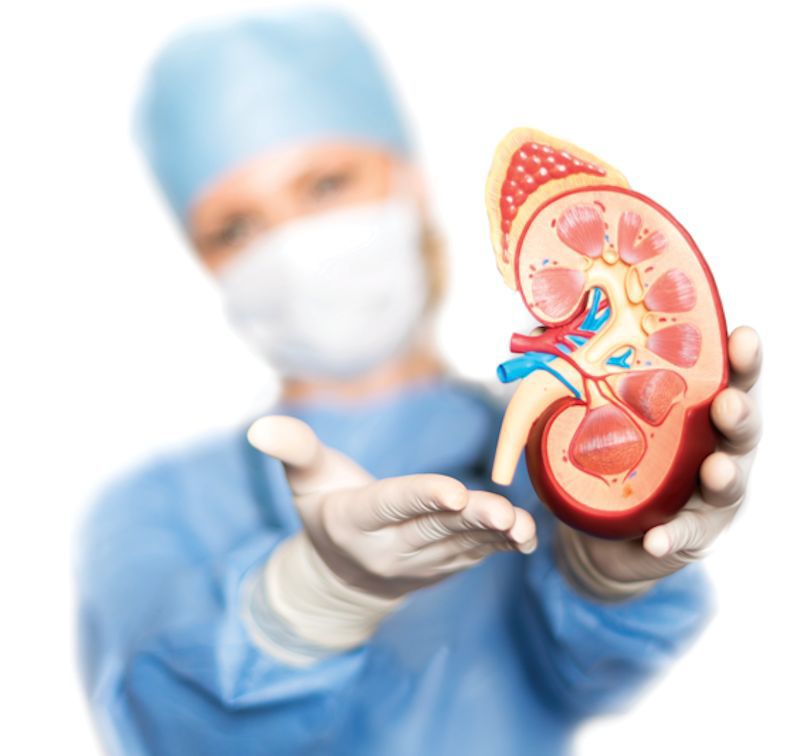
Raja Ramachandran
As life expectancy rises with advancement in healthcare and improvement in living standards, there has been a parallel increase in lifestyle-related diseases, including diabetes, hypertension and obesity. All these ailments impact kidney health, causing rise in kidney-related disorders and complications. Kidneys are vital organs responsible for filtering blood, eliminating waste products through urine, and maintaining electrolyte balance of the body.
As faulty lifestyle habits increase across all age groups, so do the related ailments, most of which impact renal health. As a result, chronic kidney disease (CKD) is not limited to the elderly any more and there is an alarming increase in kidney disease among young individuals. It is among the leading causes of deaths worldwide.
Kidney diseases can present as acute (lasting less than two weeks), subacute (2-12 weeks), or chronic (lasting over 12 weeks). Acute and subacute cases often arise as secondary conditions to other medical issues. CKD, the most prevalent form, in most cases remains hidden, with a significant portion of cases being asymptomatic or mildly symptomatic. In South Asia, CKD’s prevalence stands at 14 per cent. A cross-sectional study in India involving over 50,000 participants revealed diabetes as the cause of one-third of CKD cases, followed by CKD of unknown origin (CKDu), diseases affecting kidney filtration apparatus and high blood pressure. Sadly, half of the patients are diagnosed at an advanced stage, hindering successful intervention or treatment.
Chronic kidney disease
Up to one-fifth of individuals with diabetes can develop kidney disease, contributing to the escalating CKD incidence in India. Another common aetiology of CKD is CKDu, which is reported from various regions in India. Its exact cause remains unclear but is loosely associated with environmental and occupational exposures, such as heat stress, dehydration, agrochemicals, heavy metals, complementary medicines and infections. The relationship between hypertension and kidney disease is often likened to a chicken-and-egg situation, with CKD causing hypertension and vice versa.
Another common cause of CKD is the misuse or abuse of over-the-counter medications (OTCs), consumption of complementary and alternative medications (CAM) and misuse of recreational drugs. Certain medications, particularly painkillers, can have harmful effects on kidneys if used without proper supervision or in excessive amounts.
Additionally, kidney disease often has a hereditary component, underscoring the importance of identifying familial patterns. Early detection allows for the implementation of optimal remedial measures.
Symptoms and prevention
Common symptoms of CKD include swelling (oedema), hypertension, haematuria (blood in urine), proteinuria (high protein levels in urine) in initial stages, decreased appetite, nausea/vomiting, disrupted sleep patterns, pruritus (itching), and dyspnoea (shortness of breath) in advanced stages.
CKD presents a significant public health challenge, urging us to prioritise disease prevention and promote healthy lifestyles. With one-third of CKD cases linked to diabetes, a major preventive factor is promoting lifestyle improvements. This includes steering clear of junk food, reducing salt intake, maintaining regular exercise habits, and quitting smoking. Furthermore, vigilant monitoring of blood pressure and urine and kidney function tests play a pivotal role in averting the onset of kidney disease.
Even among diabetics, effective management of blood glucose levels and BP can forestall the development of kidney disease in the long run. Certain medications for diabetes and hypertension have also shown promise in slowing the progression of kidney disease, reducing likelihood of reliance on dialysis. Another preventive measure involves avoiding the use of OTCs and CAM. By adopting these preventive strategies, we can significantly mitigate the risk of CKD.
When patients do not respond to medications and progress to end-stage kidney disease (ESKD), kidney replacement therapy becomes necessary, such as dialysis or kidney transplant. The quality of dialysis has significantly improved, leading to improved life expectancy in these patients. However, kidney transplant remains the best treatment for ESKD patients.
Kidney disease is potentially preventable. Emphasising on healthy lifestyles, glycaemic and blood pressure control, and cautious medication usage through public education can effectively prevent and check the progression of kidney disease.
The writer is Associate Professor, Department of Nephrology, PGIMER, Chandigarh
Join Whatsapp Channel of The Tribune for latest updates.



























